- ホーム
- > 洋書
- > 英文書
- > Literary Criticism
基本説明
New in paperback. Hardcover was published in 2010. This timely study explores the relevance of Virginia Woolf's texts to questions regarding the dissemination and the deciphering of information in our current political situation, with reference to 'fundamentalisms', media consolidation and the stifling of dissent. Judith Allen approaches Woolf as a theorist of language as well as a theorist of the reading process. Closely examining her narrative and rhetorical strategies, she shows how Woolf's texts both express and enact her politics.
Full Description
"A passionate, political and provocative study"
Patricia Clements, Professor Emeritus, University of Alberta, and founding director of The Orlando Project
Times Higher Education Magazine
"The distillation of many years of sparklingly erudite scholarship and continuing incisive debate, Judith Allen's book is essential reading for anyone concerned by current and disturbing ramifications of the politics of language and the language of politics in the modern world. She provides a generously open guide to many of Woolf's most influential essays as well as to her major manifestos, A Room of One's Own and Three Guineas"
Dr Jane Goldman, Reader in English Literature, University of Glasgow
"Guided by Montaigne's trenchant question, 'What do I know?', Judith Allen shows how the lexicon of war in the twenty-first century can be revealed in all its lamentable 'truthiness' by paying attention to what Virginia Woolf's essays have to say about the power of language to transform our world. This is a book that makes refreshingly clear Woolf's deep political engagement with the urgent issues of war and peace."
Mark Hussey, Editor, Woolf Studies Annual
Judith Allen's timely study ranges from Michel de Montaigne to Jon Stewart, from the Northcliffe Press empire of World War I to Rupert Murdoch's current media empire, and explores the increasing influence of social media. Allen approaches Woolf as a theorist of language as well as a theorist of reading, and shows how her writing strategies - sometimes single, resonant words - function to express and enact her politics. Close readings of many essays, including 'Montaigne' and 'Craftsmanship', reveal how Woolf's complex arguments serve to awaken her readers to the complexities and power of language.
Contents
Introduction: From Montaigne to New Media: Reading Virginia Woolf Today; Part I: 'Theorising' Reading, 'Theorising' Language; 1. Those Soul Mates: Michel de Montaigne and Virginia Woolf; 2. Changing Titles/Transforming Texts?; Part II: The Politics of Writing; 3. The Rhetoric of Performance in A Room of One's Own; 4. Interrogating 'Wildness'; Part III: Dialogue and Dissent; 5. Thinking and Talking/War and Peace; 6. 'Patriotism' and 'those prostituted fact-purveyors'; Conclusion. 'Thinking Against the Current'; Notes; Bibliography; Index.
-
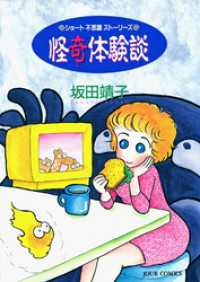
- 電子書籍
- 怪奇体験談 ショート不思議ストーリーズ…
-
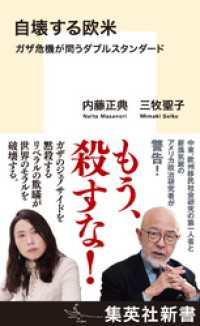
- 電子書籍
- 自壊する欧米 ガザ危機が問うダブルスタ…
-
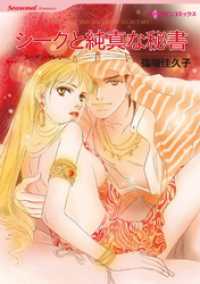
- 電子書籍
- シークと純真な秘書【分冊】 3巻 ハー…
-
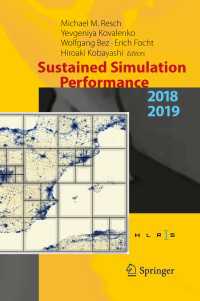
- 洋書電子書籍
- Sustained Simulatio…
-
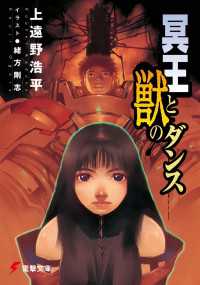
- 電子書籍
- 冥王と獣のダンス 電撃文庫



